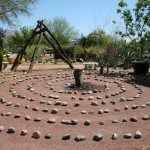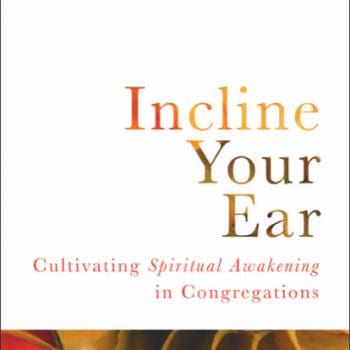 Out of our awareness of God and our trust in God grows the practice of discernment. Discernment asks the question, “What is God’s presence inviting me to be or do in this situation?” Whenever we come to an important choice in life—what work to pursue, who to be in relationship with, how to spend our time, effort and money—we can do our best to discern what God desires for us. Spiritual directors, especially those trained in discernment, can help you sort through the facts, practical considerations, gut feelings and prayer insights in order to come to some clarity about the choice.
Out of our awareness of God and our trust in God grows the practice of discernment. Discernment asks the question, “What is God’s presence inviting me to be or do in this situation?” Whenever we come to an important choice in life—what work to pursue, who to be in relationship with, how to spend our time, effort and money—we can do our best to discern what God desires for us. Spiritual directors, especially those trained in discernment, can help you sort through the facts, practical considerations, gut feelings and prayer insights in order to come to some clarity about the choice.
Discernment is less about a process (although there are many processes you can use) than about a way of life. Our one and only goal is to be in such a love relationship with God that our choices lead us to a deeper relationship. To do discernment well, we must know, deep within our soul, that God is good and desires good for us and all of creation.
One thing I really love about the principles of discernment is that they have been developed over centuries by Christians seeking to be faithful. Many of the principles are based in scripture but they are also based in the lived experience of people like you and me desiring a deeper relationship with God. We can be particularly grateful to two branches of the Christian tree for prolific writing about discernment—Jesuits and Quakers.
Jesuits are priests from the order founded by Ignatius of Loyola in the mid-1500’s. Ignatius studied what he called “movements of the heart,” both those that moved us closer to God and those that made us feel detached from God. His writings in The Spiritual Exercises have been helpful for many Christians as they sort through choices in life. Ignatian spirituality is a good place to turn if you want to learn more about discernment.
The Religious Society of Friends, also known as Quakers, was founded in the mid-1600’s by George Fox—a man who was tired of church-as-usual and set about roaming the English countryside seeking a direct and personal relationship with Christ. Living in a time of great social upheaval, Fox proposed an unusual and uncompromising approach to the Christian faith—through silence and paying attention to the inner light of Christ. For Quakers, discernment comes through prayer and meditation, waiting and listening, and testing your “leadings” in community.
In my next session, I’ll outline the key principles for discernment handed down to us from Jesuits, Quakers and others.
For more about spiritual direction as I practice it, check out my website. If you have questions or comments about the content of Spiritual Direction 101, please let me hear from you in the reply section below.











